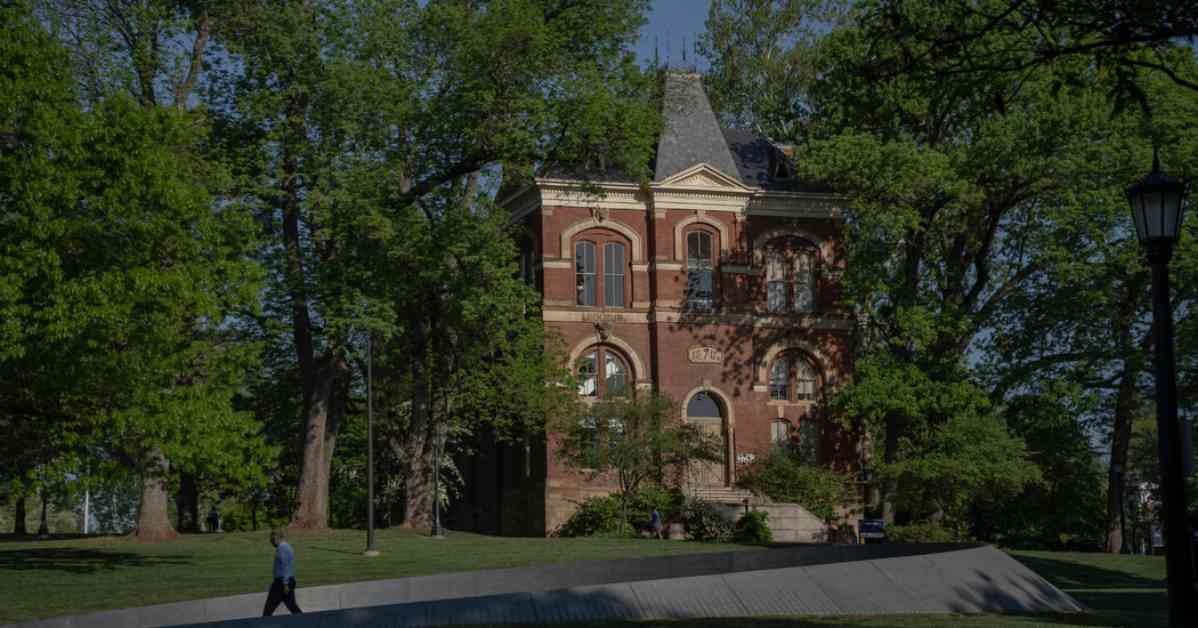The University of Virginia has recently made the decision to halt its campus tours that have been shedding light on the institution’s historical connections to slavery. This move comes in response to complaints from a group of conservative alumni who felt that the tours were overly focused on the school’s past use of enslaved laborers. The Jefferson Council, a conservative alumni group, criticized the student-led tours for highlighting the fact that Thomas Jefferson, the university’s founder, was a slaveholder while downplaying his other contributions.
The decision to suspend the tours has sparked a conversation about how universities should address their ties to slavery and other problematic aspects of their history. It also raises questions about the role of political influence in shaping the narrative of a university’s past.
Conservative Alumni Criticism
The Jefferson Council, a group of conservative alumni, has been vocal in its criticism of the University of Virginia’s campus tours, arguing that the guides were presenting a skewed version of the school’s history. According to the council, the tours focused too heavily on the university’s ties to slavery and Thomas Jefferson’s ownership of enslaved individuals, while neglecting to highlight his other contributions to the institution.
The council’s criticism highlights the ongoing debate over how universities should address their historical connections to slavery and other controversial aspects of their past. Many universities, including the University of Virginia, have been grappling with how to acknowledge and reckon with their ties to slavery in a way that is honest and respectful.
Response from University
In response to the criticism from conservative alumni, the University of Virginia has decided to suspend its student-led campus tours. The university announced that it would temporarily replace the volunteer guides with paid student interns in order to address concerns about the content and consistency of the tours.
According to Bethanie Glover, a spokeswoman for U.Va., the decision to suspend the tours was related to “issues and concerns” with the guides’ attendance and the content of the tours. The university has stated that it will work with the guide service on an improvement plan in order to address these issues and potentially reinstate the volunteer tours in the future.
Political Influence
The decision to suspend the campus tours comes amidst a broader political context, as new appointees selected by Governor Glenn Youngkin, a Republican, have cemented his administration’s control of the university’s governing board of trustees. With his appointees now holding the majority of seats on the board, there are concerns about the potential influence of political agendas on the university’s operations and decision-making processes.
The political context surrounding the decision to suspend the tours raises questions about the role of external influences in shaping the narrative of a university’s history. It also highlights the importance of ensuring that universities are able to maintain their academic independence and integrity in the face of political pressures.
Future of Campus Tours
While the student-led campus tours have been temporarily suspended, there is hope that they may be reinstated in the future. The University of Virginia has expressed a willingness to work with the guide service to develop an improvement plan that could potentially lead to the return of the volunteer tours in the spring semester.
In a statement posted on the group’s Instagram account, leaders of the guide service expressed their commitment to working with the university to ensure that the tours provide an honest and complete account of U.Va. and its history. This suggests that there is a desire to find a balance between acknowledging the university’s ties to slavery and presenting a more comprehensive view of its past.
Conclusion
The decision to suspend the student-led campus tours at the University of Virginia has sparked a debate about how universities should address their historical ties to slavery and other controversial aspects of their past. While the move has been met with criticism from conservative alumni, it also raises questions about the role of political influence in shaping the narrative of a university’s history.
As the university works to address concerns about the content and consistency of the tours, there is hope that a more balanced and comprehensive approach to presenting its history can be achieved. By engaging in dialogue and collaboration with stakeholders, the University of Virginia has an opportunity to navigate this complex issue in a way that is respectful, honest, and informative.
